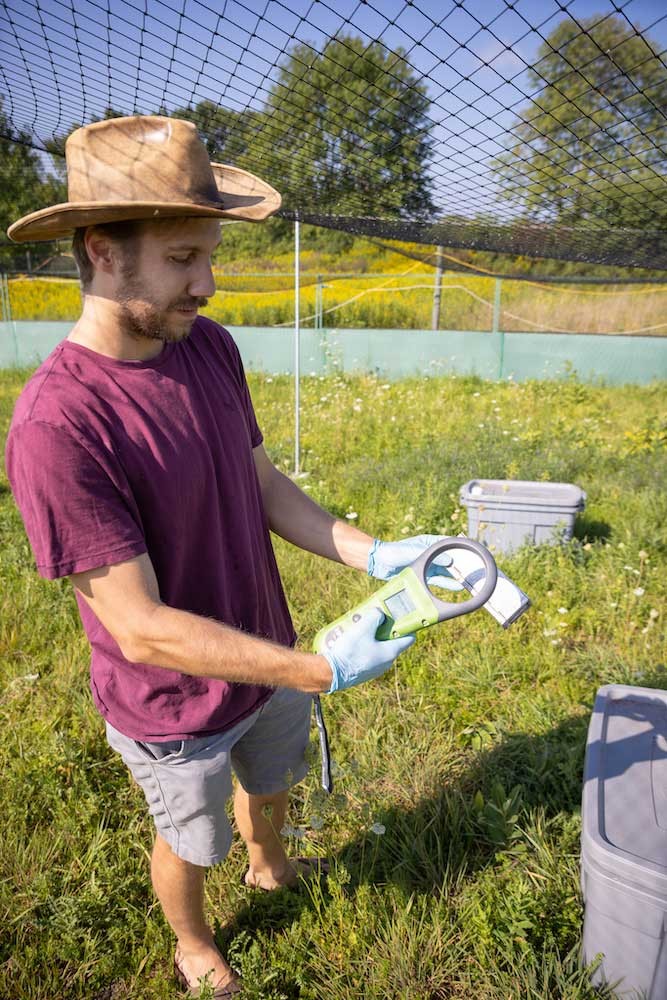
An aerial view of three outdoor enclosures designed to study lab mice living under natural conditions.
News directly from Cornell's colleges and centers
Klarman fellow tracks impact of social bonds on animal health
By Kate Blackwood
The effects of social connections ripple through a lifetime for both humans and nonhuman animals, many studies have shown. Animal behavior scientist Matthew Zipple wants to know more.
“I’m interested broadly in social relationships, but my focus is on how an animal’s mother can impact a wide range of outcomes: in childhood, adulthood, and even between generations,” said Zipple, a Klarman Fellow in neurobiology and behavior in the College of Arts and Sciences.
To learn about the longterm impacts of maternal care, other social relationships, and early-life adversity, Zipple has studied a variety of animals in different settings, including baboons in Kenya, wild swamp sparrows in northeast Pennsylvania, and – his current project – mice in a natural outdoor setting near Cornell’s Ithaca campus.
“Matthew has been a force of nature when it comes to his science,” said Michael Sheehan, the Nancy and Peter Meinig Family Investigator in the Life Sciences, associate professor of neurobiology and behavior and Zipple’s faculty co-host (with Kern Reeve, professor of neurobiology and behavior.) “He is a rising star within the field of animal behavior.”
Read the full story on the College of Arts and Sciences website.
Media Contact
Get Cornell news delivered right to your inbox.
Subscribe

